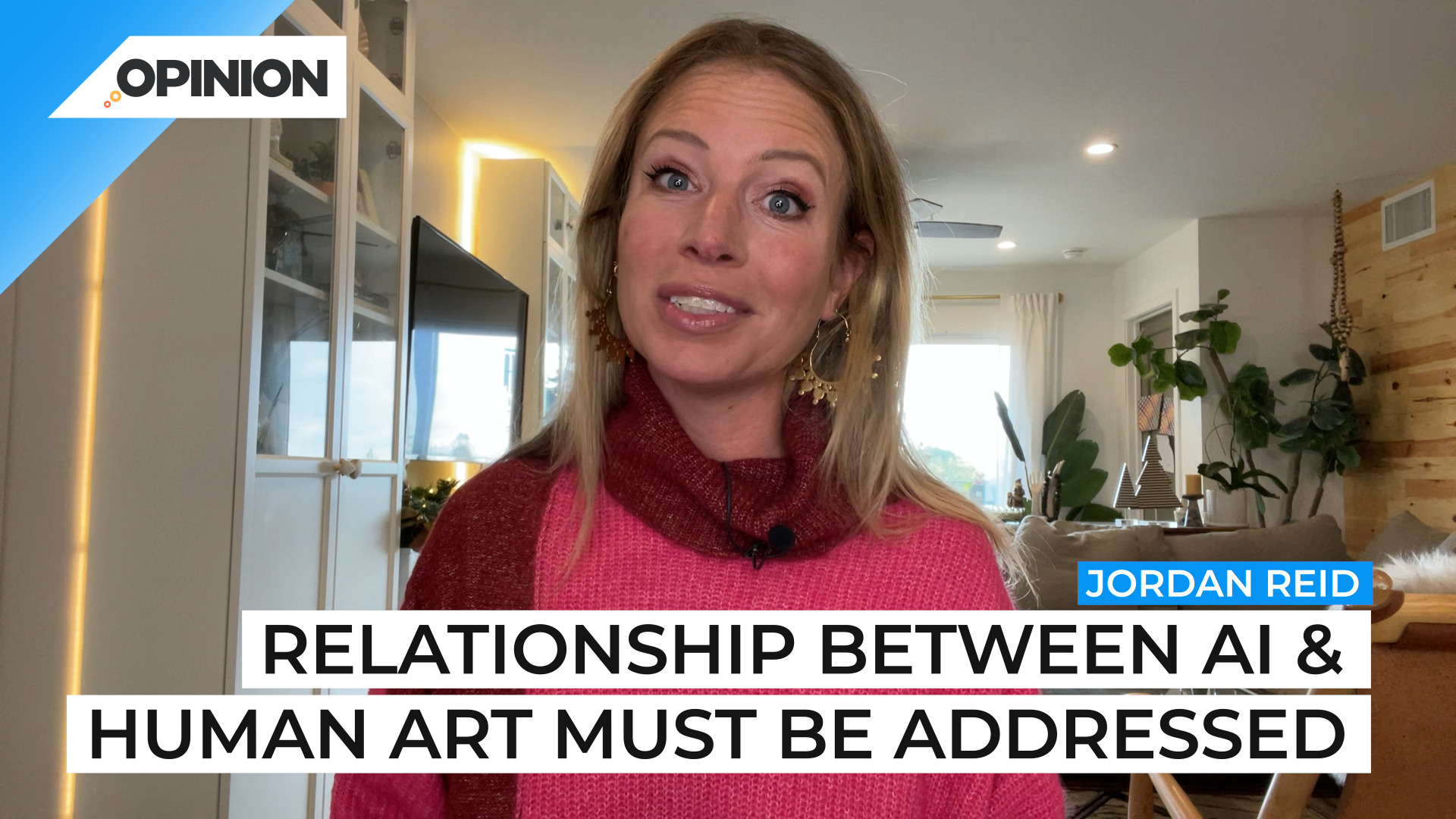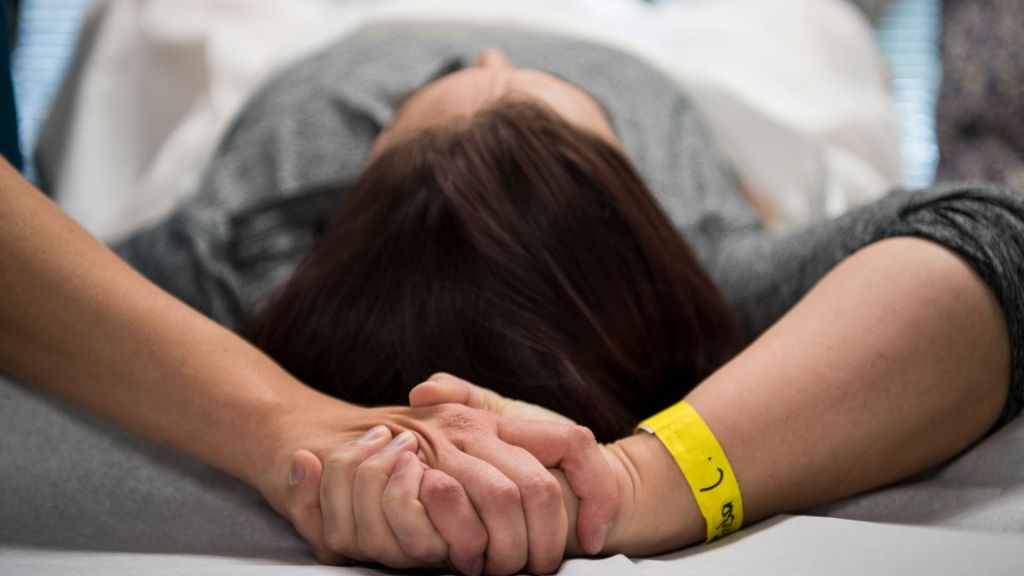
Commentary
-
Our commentary partners will help you reach your own conclusions on complex topics.
For the past week or so, the Internet has been aflutter with talk of Lensa, an app that uses AI to combine assorted images of you into so-called “magic avatars,” in which you can see what you’d look like as…essentially, an artistic masterpiece. The AI creates images of you in various styles, including anime, oil paint, and what can best be described as “woodland fairy creature.”
On the surface, this is all pretty fun and harmless, right? Except once I downloaded my images, I noticed something odd – even unsettling.
The pictures didn’t all look like me – some of them looked like Jessica Biel, and others looked like…I mean, I don’t even know what we call this [insert weird robot pic unless it’s too porn-y; I’ll give you two options for what I say here]…but the ones that looked like me…they really looked like me. Like, they captured something – and I don’t want to sound too crazy here – but…something essential. In the eyes. It captured personality.
And I don’t know how I feel about that.
First, going just on the volume of avatars I’ve seen on my feed – the app was apparently downloaded 1.6 million times in November alone – Lensa is collecting a lot of data about a lot of people.
And the creators say that all the data is deleted after the avatars are created, but…come on. I don’t have that optimistic a view of technology. Or humans.
But the app has also raised some fascinating debates about everything from ethics and representation to appropriation.
How the app works is by collecting work from artists all over the Internet, and learning their techniques – then applying them to facial recognition technology.
Which naturally leads to the question: Do the app’s creators have the right to use real artists’ work to train their AI’s “eye,” and then sell that work for a tiny fraction of the price of a real commission?
There’s a similar issue created by AI text generators, which have advanced to the point that they’re able to create output that’s impressive to the point of alarming many.
A recent Atlantic article told the story of a UK professor who used OpenAI technology to generate an entire essay from a prompt…and would have given it a good grade.
If students employ this technology, do they ever really learn the essential skill of writing? Writing is how we teach children to think critically, to develop arguments – and if they can input a prompt into a computer program, doesn’t that change the fundamental structure of…the entire educational system?
It’s a mind-bending problem for sure, and absolutely suggests that the relationship between AI and human art in all forms needs to be addressed…but it’s also more layered than just “AI bad.”
Take the argument of Virginia Heffernan, in the excellent book Magic and Loss – Heffernan holds that changes of this sort (to be clear, she wasn’t talking about AI specifically, or AI art), aren’t inherently “good” or “bad” – they’re just…what’s next.
Emojis and emoticons are essentially now accepted as a sort of hieroglyphic form of written language. And remember how the early users of cameras feared that the technology was in a way stealing their souls? Who’s to say that the new AI technology won’t open doors for artistic expression and experience far beyond what we know today?
Alternatively, who’s to say it won’t just take over the world, Terminator style? Watch this space.
-
RFK Jr.’s war on psychiatric meds risks decades of progress
On Feb. 18, during his first meeting with staff, Health and Human Services Secretary Robert F. Kennedy Jr. stated that he intends to address the possible overmedication of children and the risks of antidepressants — echoing a Trump executive order aimed at reducing childhood chronic disease rates. The order has sparked concerns over youth access… -
Loss of USAID makes America and the world less safe
Elon Musk and President Trump shocked the U.S. foreign policy community and America’s partners around the world with the early and abrupt closure of USAID, the United States Agency for International Development. USAID was a cornerstone of U.S. foreign policy and consistently received bipartisan support from Congress. Experts warned that the decision puts millions of… -
Trump’s ‘Gulf of America’ renaming is mere political spectacle
Aboard Air Force One, en route to the Super Bowl in New Orleans, President Trump held a news conference. As the flight entered international waters over the Gulf of Mexico, he issued an executive order renaming it the “Gulf of America” and declaring Feb. 9 as “Gulf of America Day.” The order, titled Restoring Names… -
President Trump politicizes DC plane crash as Americans mourn
Sixty-seven people died when a Black Hawk helicopter crashed into American Airlines Flight 5342 as it came in for a landing at Reagan National Airport on the night of Jan. 29 outside of Washington, D.C. Investigators are still examining the accident and putting details together, but believe that the helicopter was flying at too high… -
Project 2025 is Trumpism on steroids
President Trump has already taken several actions that align with Project 2025, a far-right blueprint for Trump’s second term developed by the Heritage Foundation. Among other intiatives, his administration has moved to eliminate DEI programs, reinstate service members dismissed for refusing the COVID-19 vaccine, and revive “Schedule F,” a policy making it easier to fire…
Latest Opinions
-
 Getty Images
Getty Images
James Cameron seeks New Zealand citizenship following ‘horrific’ Trump re-election
-
 Getty Images
Getty Images
San Francisco DA Charges 11 in SNAP fraud scheme involving $4M
-
 Getty Images
Getty Images
California’s minimum wage increase led to job losses, higher prices: Study
-
 Getty Images
Getty Images
Appeals court blocks Arizona’s proof of citizenship law, cites voter suppression
-
 Getty Images
Getty Images
‘The free world needs a new leader’: Trump-Zelenskyy make jaws drop
Popular Opinions
-
In addition to the facts, we believe it’s vital to hear perspectives from all sides of the political spectrum.






